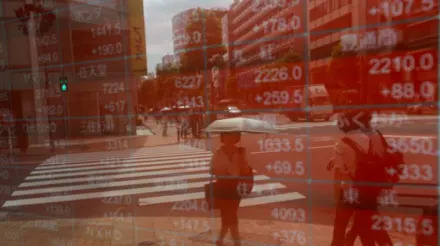Shares of major U.S. banks were sharply lower on Thursday as Wall Street reacted to President Donald Trump’s announcement of sweeping tariffs that economists warn could stunt economic growth and reignite inflation.
The KBW Nasdaq Bank Index ( BKX ) was down more than 8% in recent trading. A decline of that size would represent the index’s worst day since the regional banking crisis of March 2023, when the collapse of Silicon Valley and Signature Banks coincided with an 11% drop for the benchmark index.
Regional banks Western Alliance ( WAL ) and Zions Bancorp ( ZION ), both down double digits Thursday, were leading the index’s decliners. Among the largest U.S. banks, Citigroup ( C ) and Bank of America ( BAC ) were the hardest hit, falling 10% and 9%, respectively. Shares of JPMorgan Chase ( JPM ), one of the world’s largest banks, were down 6%, while investment banks Morgan Stanley ( MS ) and Goldman Sachs ( GS ) were both off more than 7%.
New Tariffs Threaten To Slow Economic Growth
Banks aren’t directly affected by Trump’s tariffs, which apply first to companies that buy and sell goods. However, like all services, banking benefits from a healthy economy in which businesses and consumers are borrowing, investing , and spending.
Economists have warned that the new tariffs , which could lift America’s overall tariff rate to its highest level in a century, threaten to slow economic growth, reduce investment, and weigh on consumer spending. Many investors and economists are concerned the tariff fallout could result in stagflation and complicate the Federal Reserve's efforts to bring inflation down to its 2% target without pushing the economy into a recession .
Deutsche Bank analysts on Wednesday warned that the tariffs as outlined could shave 1 to 1.5 percentage points off U.S. gross domestic product growth this year—"meaningfully raising recession risks"—and tack a similar amount onto the core inflation rate .
Read the original article on Investopedia





